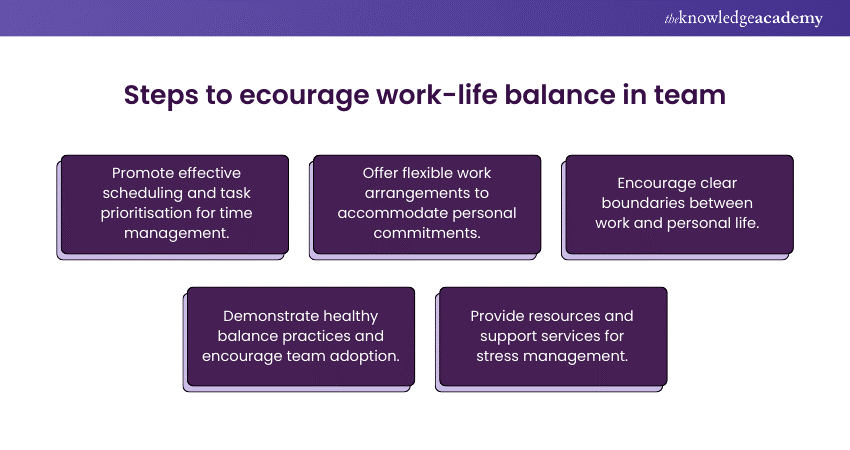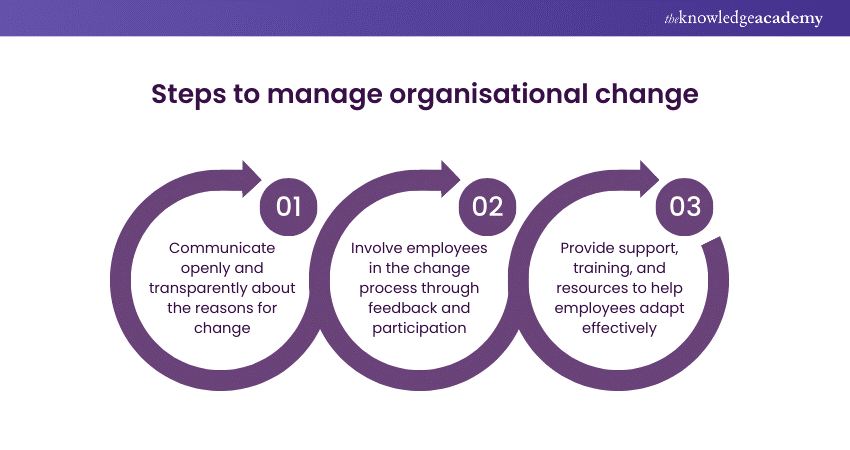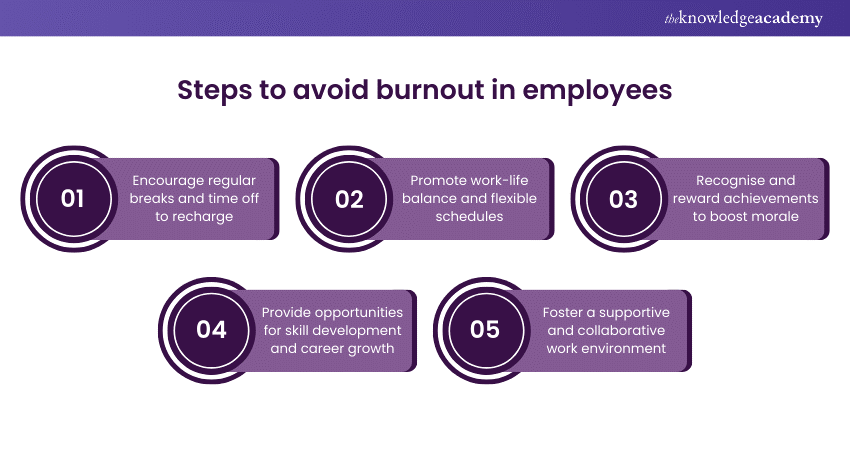We may not have the course you’re looking for. If you enquire or give us a call on +44 1344 203 999 and speak to our training experts, we may still be able to help with your training requirements.
Training Outcomes Within Your Budget!
We ensure quality, budget-alignment, and timely delivery by our expert instructors.

Are you facing the myriad challenges of supervising teams in today's dynamic work environment? Navigating through the complexities of managing people, tasks, and resources can be daunting. The Supervisor life is a heroic quest filled with noble missions such as motivating your team, slaying project deadlines, and fostering a harmonious office culture. Recognising and understanding these Challenges for Supervisors can win you half the battle.
In this blog, we'll delve into the top 15 Challenges for Supervisors, offering insights and strategies to overcome them. From communication breakdowns to conflict resolution, we'll explore the diverse obstacles that Supervisors encounter daily. Join us as we unravel the intricacies of Supervisory roles and equip you with the knowledge and skills to tackle these challenges head-on.
Table of Contents
1) List of Challenges faced by Supervisors
a) Motivating employees
b) Effective communication
c) Reaching team goals
d) Improving employee engagement
e) Keeping work-life balance
f) Addressing absenteeism
g) Managing multiple personalities
h) Managing organisational change
i) Disagreement among people
j) Incompetent employees
2) Challenges faced by new Supervisors
3) Conclusion
List of Challenges faced by Supervisors
Here are some of the most faced Challenges for Supervisors with methods to tackle them:
1) Motivating employees
It will be the role of a Supervisor to realise diversified ways of the motivation of team members and come up with motivating strategies on how best to capitalise on their full potential. This could also involve individual recognition of achievements, opportunities for growth, maintaining a good working environment that could interest and influence the team easily.
2) Effective communication
Effective communication is one of the most important qualities that a Supervisor must possess, be it to express the needed guidance, set up the objectives, or even make sure that each team member can understand the other. This entails both the capability to put forward guidelines and goals and to delve into difficulties, questions, and open deliberation.
3) Reaching team goals
Supervisors have the role of streamlining the efforts and strategies put up by his subordinates towards the realisation of set objectives. It includes effective coordination, delegation, and collaboration with one another while confronting difficulties with potential conflict.
4) Improving employee engagement
This is an environment in which the employee creates a feeling of value, motivation, and ownership of work. Supervisors are very vital in creating involvement among employees through the recognition and rewarding of accomplishments, giving opportunities for growth and development, and resolving any issues that might affect morale or motivation.
5) Keeping work-life balance
Leaders are necessary to take care of subordinates and ensure that there is a better equilibrium in personal and professional lives of employees.

This may even go to the extent of setting policies and practices to allow flexible scheduling, encouragement of time off, provision of resources for stress management, and self-care to discourage burnout and promote good health in general.
Improve your leadership qualities through our Leadership Skills Course.
6) Addressing absenteeism
Supervisors are to monitor absenteeism through applicable attendance policies, tracking and addressing the likely causes that will contribute to absenteeism. This may involve providing support and resources to employees facing personal or health-related challenges, along with clear expectations or consequences related to attendance.
7) Managing multiple personalities
The task of managing many different personalities is a task that involves the Supervisor's manoeuvring through the many different personalities and working styles of his or her subordinates so that there is cooperation and no conflict. Conducting team building, conflict resolution, and professional development opportunities that enhance cohesion and productivity involves strengthening the personal strengths, preferences, and communication styles of the team members.
8) Managing organisational change
Supervisors play a crucial role as enablers of change within the organisation and provide effective communication to the team, support, and guidance through transitions, assisting in preserving continuity from change circumstances.

This may include helping members of his teamwork through ambiguity, getting acclimatised to new processes or systems, and perceiving change as an opportunity for professional development, and improvement.
9) Disagreement among people
Interpersonal skills and techniques in conflict resolution are indispensable when intervening in conflicts or mediating disagreements between team members. The Supervisor should encourage dialogues which are always constructive, pushed for the compromise, and strived toward reaching the agreement that might be of use for conflict resolution but not so for negation of harm.
10) Incompetent employees
Supervisors should explain that unsatisfactory performance entails talking to the employees concerned and may need to provide them with additional support or training. This may include the process of performance appraisals, areas for development, and how specific, useful feedback, or resources can help improve skills or abilities.
Improve your organisational efficiency through our Successful People Management and Team Leadership Course.
11) Paperwork
Supervisors are to manage administrative work, which includes recording, reporting, and keeping an updated record for the organisation's organisational policies and procedures. This may involve the maintenance of accurate performance appraisal records for the employees and disciplinary action records with the documents ready in both cases, be it management review purposes or regulatory purposes.
12) Burnout
Supervisors need to be able to observe burnout in employees and ensure that it does not occur, because this is detrimental to the well-being of the employee and activity.

These may include watching levels of workloads and stress, promoting time off and work-life balance, and providing resources that support management of stress and self-care to prevent burnout while maintaining a healthy and motivated workforce.
13) Remote management of employees
Superior shall, in his or her execution, manage remote teams effectively with the use of technology and communication tools to enable collaboration, engagement, and productivity. This may include setting clear expectations, offering remote-friendly resources and support, and even creating some form of connection or sense of belongingness between the members of the remote team.
14) Firing employees
This is among the most sensitive duties of any Supervisor when dismissing an individual from the assigned post. It requires sensitivities with good communications all along, including leading termination meetings, providing clear explanations and support, and transitioning the employee out of the organisation very respectfully and in a dignifying manner.
15) Relentless pace
Running and making a perfect balancing act should be done by management at middle and top levels in work environments characterised by relentless paces, competing priorities, deadlines, and optimal performance, sometimes where pressure and uncertainty are experienced. It will need one to be effective in time management, be able to set priorities, make decisions, and be able to adapt to circumstances while still maintaining focus and resiliency during challenges.
Improve your leadership skills through our Decision Making Skills Training.
Challenges Faced by new Supervisors
If you are new in a Supervisory role, then the challenges you face might be unique and would require innovative methods to resolve. Here is a list of the five most common problems you might face as a new Supervisor:
1) I am not sure how to do it
New Supervisors often grapple with self-doubt, unsure if they possess the necessary skills for their new role. This uncertainty arises as they transition from being proficient individual contributors to overseeing a team. Employers should acknowledge these feelings and provide ongoing support to boost their confidence and reassure them of their capabilities.
They have to receive constant empowerment and mentorship that helps them overcome their fears. The managers should make sure time is set aside and mentor their employees with daily coaching, being sensitive to any fears they may have, and develop confidence. By talking about fears and insecurities openly, it's easy to humanise these feelings and allow the Supervisor to realise that he is not the only one feeling that way.
2) Not sure what to do.
Transitioning from following instructions to providing them can be challenging for new Supervisors. They must learn to balance assertiveness with empathy, understand their communication style's impact, and develop effective listening skills. Additionally, they may struggle with the transition from being liked by peers to making tough decisions as a leader.
Training programs for the Supervisors have to be developed with an all-round emphasis on the key soft skills of communication, delegation, and conflict management. The same may be further crystallised through regular coaching and mentoring relationships, which give new Supervisors practical guidance and support in his newfound responsibilities.
3) I am not sure if I can do it.
New Supervisors often lack clarity on their role expectations and may struggle with unfamiliar tasks such as conducting performance reviews or managing disciplinary procedures. Without proper guidance and induction, they may feel overwhelmed and ill-equipped to fulfil their duties effectively.
In this aspect, to ensure better induction, guidance should be provided on HR procedures, performance management, and organisational policies so that new Supervisors could learn to understand and fulfil their responsibilities regarding the role expectations, processes, and policies in clearer terms. It means, therefore, that the supervision is further supported with continued training and support that would ensure that the Supervisor has the knowledge and skills required for the effective execution of their responsibilities.
4) It's hard to jump the fence
Transitioning from a peer to a Supervisor can lead to feelings of isolation as new Supervisors navigate their relationships with former colleagues. They may struggle to balance their role as a leader while maintaining camaraderie with their team members, leading to feelings of loneliness and disconnection.
Employers should recognise the emotional impact of this transition and provide support to help new Supervisors adjust. Encouraging team-building activities, fostering open communication, and creating a supportive work culture can help integrate new Supervisors into their leadership roles while maintaining positive relationships with their team members.
5) Feeling isolated
New Supervisors may feel isolated as they navigate their new role, neither fully part of the team nor fully integrated into management. This isolation can lead to demotivation, disengagement, and potential burnout if left unaddressed.
Managers should prioritise inclusive leadership practices, actively involving new Supervisors in decision-making processes and team discussions. Regular check-ins and one-on-one meetings provide opportunities for Supervisors to voice concerns and receive support. By fostering a sense of belonging and inclusion, organisations can mitigate feelings of isolation and support new Supervisors in their transition.
Conclusion
In conclusion, navigating the Challenges for Supervisors is a crucial aspect of effective leadership. By understanding and addressing these obstacles head-on, Supervisors can foster stronger teams, improve productivity, and drive organisational success. Embrace these challenges as opportunities for growth and development and watch your leadership skills flourish.
Frequently Asked Questions

An especially challenging time for supervision is during periods of organisational change or crisis, such as restructuring, mergers, or economic downturns. Supervisors must navigate uncertainty, manage heightened stress levels among employees, and maintain productivity amidst shifting priorities and dynamics.

Poor supervision can result from various factors such as inadequate training, lack of communication skills, micromanagement, favouritism, lack of accountability, and failure to provide clear expectations or feedback. These issues can lead to decreased morale, productivity, and employee engagement.

The Knowledge Academy takes global learning to new heights, offering over 30,000 online courses across 490+ locations in 220 countries. This expansive reach ensures accessibility and convenience for learners worldwide.
Alongside our diverse Online Course Catalogue, encompassing 17 major categories, we go the extra mile by providing a plethora of free educational Online Resources like News updates, Blogs, videos, webinars, and interview questions. Tailoring learning experiences further, professionals can maximise value with customisable Course Bundles of TKA.

The Knowledge Academy’s Knowledge Pass, a prepaid voucher, adds another layer of flexibility, allowing course bookings over a 12-month period. Join us on a journey where education knows no bounds.

The Knowledge Academy offers various Leadership Courses, including Leadership Skills Course, Agile Leadership Training and Instructional Design Training. These courses cater to different skill levels, providing comprehensive insights into Delegation Skills for Effective Leadership.
Our Business Skills Blogs cover a range of topics offering valuable resources, best practices, and industry insights. Whether you are a beginner or looking to advance your skills, The Knowledge Academy's diverse courses and informative blogs have you covered.
Upcoming Business Skills Resources Batches & Dates
Date
 Leadership Skills Training
Leadership Skills Training
Fri 29th Nov 2024
Fri 27th Dec 2024
Fri 28th Feb 2025
Fri 11th Apr 2025
Fri 27th Jun 2025
Fri 22nd Aug 2025
Fri 24th Oct 2025
Fri 12th Dec 2025
 Halloween sale! Upto 40% off - Grab now
Halloween sale! Upto 40% off - Grab now







 Top Rated Course
Top Rated Course



 If you wish to make any changes to your course, please
If you wish to make any changes to your course, please


